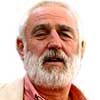For a couple of days this week it seemed possible to think of a new start in Argentina, as if Spring had a second start after the hailstorm.
Between Tuesday night and Wednesday morning an impressive display of disciplined City police in Parque Chacabuco sat out a siege of two armed young gangsters who had taken officers hostage: the gunmen were convinced to surrender. That same night, orderly Federal Police acting in Buenos Aires province, outside their territory, stormed a score of homes and offices in search of weapons, money-laundering, extortion and terror tactics, eventually to arrest Juan Pablo “Pata” Medina, the chief thug for 20 years in the UOCRA construction workers union branch in La Plata. (Mention of Federal Police outside their territory is important, they require “authorisation” from competitive or host forces in the areas visited.)
And on Wednesday, excitable morning TV presenters were a-buzz with the confirmation that architect Julio De Vido, the Kirchners’ personal fundraiser for nearly three decades, would face the first of many charges of embezzlement of squillions of pesos allocated to public works sometimes started, seldom completed. María Luján Río, the campaigning mother of a young man who died in the Once train crash that killed 51 people and injured 702 in February 2012, told TV that morning that she hoped the trial of De Vido would get people thinking that they had to speak out, to complain, to fight. She sounded great. Further, she reflected pleasure and fury in referring to De Vido as a coward.
Politician Elisa “Lilita” Carrió said the happiest day of her life will be that on which De Vido is locked up. She may have a long wait. Other De Vido aides, under-secretaries and such who ran corrupt arrangements in the railways (De Vido bought obsolete rolling-stock which was never used, not even as scrap) have been sentenced but are not in prison because the law allows them freedom while they await appeal.
Corruption cases, the big ones, are not easy to solve. The evidence is usually dispersed and handled in several courts, difficult to bring together. Like the big drug barons e.g. Pablo Escobar Gaviria (1949-1993), the likes of “Pata” Medina (and let’s include De Vido, why not?) satisfy their exaggerated fancies spending inordinate sums of hard cash that cannot be kept in banks. Thus Medina has an elegant two-engine executive jet, a helicopter, about 100 new cars (some of which had not run more than a few miles), houses etc., he even bought football clubs. This is, in part, one operative reason why trials of notorious suspects of laundering and extortion are hard to nail in one single trial.
Justice Minister German Garavano, 47, who specialises in judicial reform, argues that these cases in some way date back to the Spanish Empire, and due to peer pressure the rules have never been changed.
Sweeping up selected bad guys had got under way some time ago, as in the railway workers union (UF) where the boss, José Pedraza, is in prison for plotting the murder of a Trotskyist demonstrator, Mariano Ferreyra, who was killed by a gang of six that included two police officers. All are in prison.
That happened in 2010, when Mrs Fernández de Kirchner withdrew support for her previously powerful chum. And the same happened with Omar “The Horse” Suárez, Cristina’s favourite for a long time, a corrupt and twisted leader of the maritime workers’ union (SOMU), now patriotically betrayed and jailed. He cried his eyes out in his appeal for domestic detention, but stayed in prison.
The menu for all these guys is repetitive. They climbed up treading hard on their mates, they bullied, threatened, destroyed, overcharged contracts by up to 62 percent, laundered money, threatened business leaders (Medina said he would blow up the YPF plant in La Plata), set up their own companies to monopolise food and clothes supplies for workers, found jobs for workers “on the side.” It’s a fun place to be, the trade union scene.
And the knives were out in recent weeks for Victor Santa Maria, head of the janitors (Suterh) union and president of the Justicialist (Peronist) party for the city of Buenos Aires, owner of Página 12, member of the Parlasur, wage and expenses in hard currency for friends elected to a non- existent South American parliament, owner of magazines Caras & Caretas, and Planeta Urbano, an AM radio station, other publications, founder of a trade union university. Enterprising men all of these guys. Money and influence galore.
And yet, having offered a fraction of what is longestablished corruption in trade unionism, what can be listed here is just that, a fraction. Throw in the most recent reports of internal conflict in the once (and still partly) powerful metal workers union (UOM) where long-serving attachments to the leadership have kept a tight hold on deceased chiefs’ holdings. These are cash networks and properties. And even the nice guys are involved.
Farm workers leader, Gerónimo “Momo” Venegas, 75, did himself the favour of dying last June 26. He left his five daughters and one son to squabble over his personal fortune in cash, also an elegant hotel on Reconquista, Facón Grande, real estate, etc. He was president Macri’s strongest supporter in the unions throughout the presidential rise to office.
For a difference, leave behind the unions. The mafia action is everywhere. Last week Jorge Lanata’s crew went into the Wild West of Buenos Aires, La Matanza (“The Slaughter,” no less), where crooked prosecutors, senior police officers, even a priest who virtually or criminally manages the police force are installed in the local municipality offices in the name of public security.
For now, hopes for a fresh start in Argentina are concentrated on the trials of Medina and De Vido. Hope should be encouraged.





















Comments